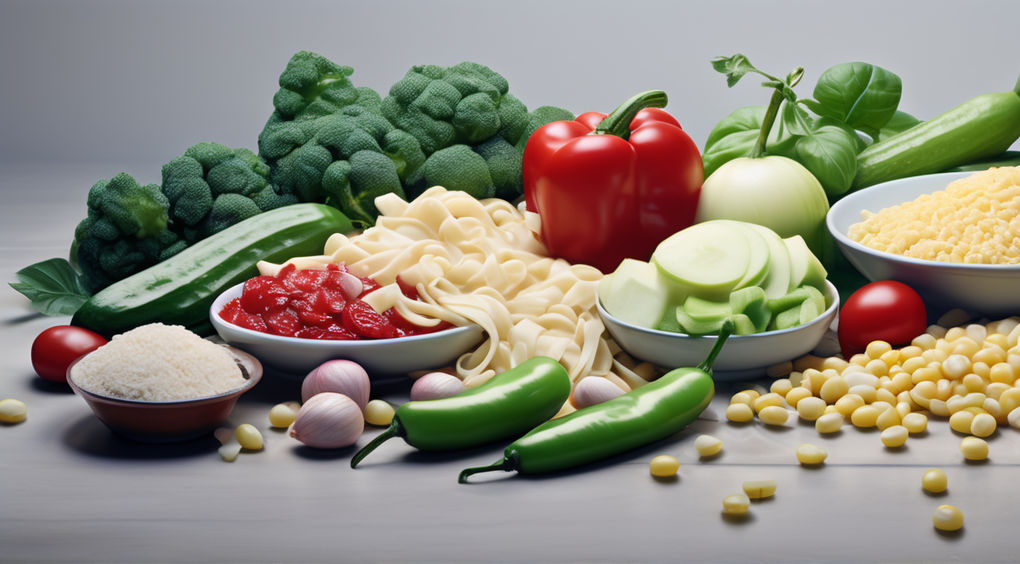Understanding 30 Grams of Carbohydrates Video
Carbohydrates are often misunderstood nutrients. While some diets advocate for minimal carb intake, it's essential to remember that carbohydrates are the body's primary energy source. They fuel our brains, muscles, and daily activities, making them indispensable, especially for those who lead active lifestyles or have demanding mental tasks.
The Role of Carbohydrates
Carbohydrates are more than just sugar; they are the backbone of a balanced diet, providing the energy required for everything from intense workouts to powering through your workday. The recommended daily intake for most individuals is between 45-65% of their total daily calories, which translates to about 170g - 450g of carbohydrates based on a standard 2000-calorie diet. This range ensures that your body gets enough fuel for all its functions while maintaining a healthy balance.
Visualizing 30 Grams of Carbohydrates
To grasp what 30 grams of carbohydrates entail, let's explore the equivalent amounts in various common foods:
- - Beans: A hearty 200g serving of beans not only provides 30g of carbs but also a significant amount of fiber and protein, making it an excellent choice for sustained energy release.
- - Apples: Approximately 230g of apples (about 2 medium-sized fruits) offer 30g of carbs, along with essential vitamins and a high fiber content, beneficial for digestive health.
- - Pasta: A modest 40g of raw pasta, when cooked, transforms into a comforting meal, delivering 30g of carbs along with some protein and minimal fat.
- - Dates: Dense with natural sugars, just 40g of dates can provide a quick energy boost with 30g of carbs, making them a perfect pre-workout snack.
- - Capsicum: Surprisingly, a whopping 380g of capsicum (bell peppers) is needed to reach 30g of carbs, offering a massive dose of vitamin C and antioxidants with minimal calories.
- - Bread: A slice or two (around 60g) of whole grain bread not only gives you 30g of carbs but also supplies dietary fiber and essential nutrients.
- - Corn Flakes: A small bowl of about 35g of corn flakes can start your day with 30g of carbs, though it's wise to opt for whole grain varieties for better nutrition.
- - Cucumber: With its high water content, you would need to consume about 820g of cucumber to intake 30g of carbs, making it an excellent hydrating and low-calorie option.

Balancing Carbohydrate Intake
While carbohydrates are essential, their intake needs to be balanced according to one's lifestyle, health goals, and dietary needs. For instance:
-
- Weight Gain: For those looking to gain weight, energy-dense foods like dates and pasta can be beneficial. These foods provide a higher carbohydrate content in smaller volumes, making it easier to consume more calories.
-
- Weight Loss: If weight loss is your goal, focusing on foods with a higher water content like fruits and vegetables can be advantageous. These foods provide more volume with fewer calories, helping to create a sense of fullness and satisfaction while keeping carbohydrate intake in check.
No Food Is Off-Limits
No food needs to be entirely off-limits, but understanding the carbohydrate content in foods can empower you to make informed choices. Whether you're aiming to lose, maintain, or gain weight, a little knowledge about the carb content in your meals can go a long way in helping you achieve your dietary goals. Remember, balance is key, and carbs, when consumed mindfully, can be a healthy and essential part of your diet.
Conclusion
30 grams of carbohydrates can look vastly different depending on the food source. By understanding the carbohydrate content of various foods, you can better plan your meals and snacks to fit your energy needs, whether you're aiming for weight loss, weight gain, or simply maintaining a balanced diet. Remember, carbohydrates are a vital part of our nutrition, and finding the right balance is key to a healthy, energized lifestyle.
References
1. USDA FoodData Central. https://fdc.nal.usda.gov/fdc-app.html#/
2. Mayo Clinic. Carbohydrates: How carbs fit into a healthy diet. https://www.mayoclinic.org/healthy-lifestyle/nutrition-and-healthy-eating/in-depth/carbohydrates/art-20045705#:~:text=How%20many%20carbohydrates%20do%20you,grams%20of%20carbs%20a%20day.
3. Mozaffarian D, Hao T, Rimm EB, Willett WC, Hu FB. Changes in diet and lifestyle and long-term weight gain in women and men. N Engl J Med. 2011;364:2392-404.
4. Physicians Association for Nutrition. Carbohydrates: A Complex or Simple Matter? https://pan-int.org/carbohydrates-a-complex-or-simple-matter/